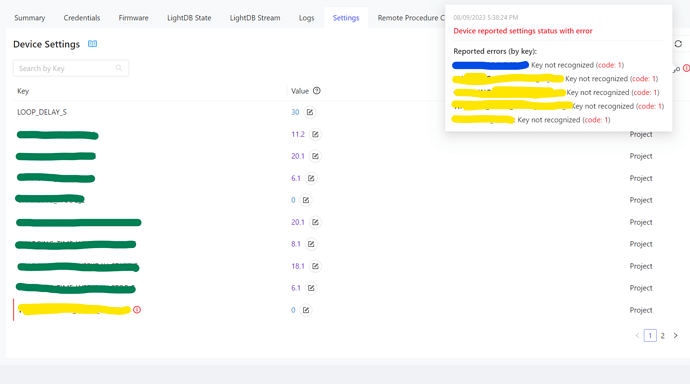I have an interesting situation that I found. (I hesitate to call it a bug yet.)
We’re in the middle of a big refactor of a project, and I’m bringing up Golioth and its libraries into an existing Golioth project. I’m finding that the errors on the settings page for a device don’t match what I would expect from the project.
I’m using an ESP32S3 with IDF v5.2. I have currently implemented the Loop Delay and have tested that changing it on the console successfully updates it on the MCU.
However, here is what I’m seeing on the Console’s Devices > (this device) > Settings tab:
(Pardon the redactions).
- Green is exists in the Device Settings, but doesn’t exist in the MCU code. This should be flagged as Key Not Recognized.
- Yellow is exists in the Device Settings, but doesn’t exist in the MCU code. This is correctly flagged.
- Blue is doesn’t exist in either Device Settings or MCU code. Not sure how this is getting flagged at all. It’s an old setting we’ve deprecated and deleted from the Project-wide Device Settings.
I’m assuming the Blue is due to it being set at a Device or Blueprint level, but not at the Project level. And it’s still being pulled in to be displayed here.
Green is baffling me though. Why aren’t these being tagged as key not found?
